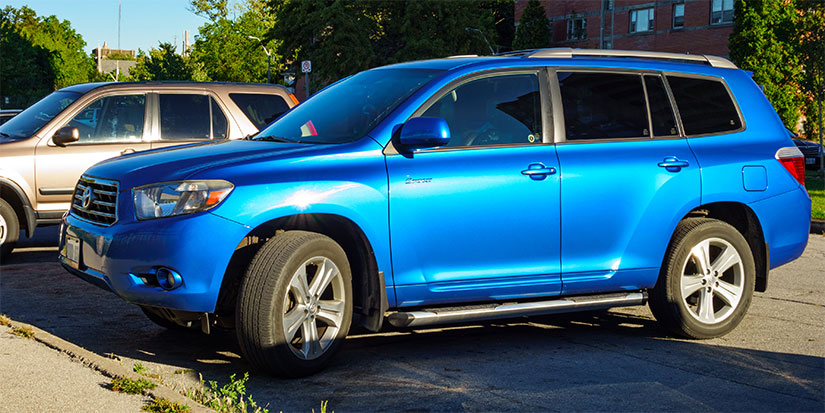
New Year’s Resolutions
I’m not a big fan of New Year’s resolutions. A few times, I’ve made a New Year’s resolution to lose weight. Still fat!
Be Smart
The BE SMART podcast has been in existence for a while, and I thought it was a clever bit of branding on my part, because isn’t that what we all hope to aspire to do in money and markets—be smart?
Chunky Revenue Streams
My job is to write newsletters. I get paid pretty much every day of the year, as new subscriptions and renewals come in. It is a fairly steady revenue stream.

Owning a Beater Car
I have a beater car. It is a 2017 Toyota Highlander with 120,000 miles on it. It has all those miles because I was doing a lot of commuting for many years. Like a lot of Toyotas, the car runs fine, but the electronics are on the fritz, and it’s just kind of a mess.
I’d like to get a new car, and I have my eye on one—I’d like to get a new BMW X5. But I’m a little short on cash at the moment, so it will have to wait. I bought the Highlander for $40,000 in 2017, and at this point, I’d guess it’s worth about $12,000 to $15,000. I never had debt on it. Someone else can buy it and drive it for another 100,000 miles.
There is something to be said for a beater car. First, you’ve paid off the loan, and now you have equity in the car. A second point, and a lot of people underestimate this, but buying a new car is nerve-wracking. The first time someone dings your car with a door in the parking lot, you go into orbit. Or maybe you scratch the rims on a curb. With an old car, you just don’t care, and you can beat the crap out of it for years, which is actually a huge benefit.
The problem with getting nice stuff is that you have to take care of it. Anyway, I don’t mind being the guy in the fancy neighborhood who has an unfancy car. I haven’t completely lost my blue-collar sensibilities.
Buying a New Car Is a Luxury
These days, buying a new car is a luxury. The average price of a new car is $46,000, and the nice ones cost a lot more than that. 90% of car purchases in the United States are financed in some way, shape, or form. Rich dude who spends $80,000 on a BMW and pays cash is definitely the exception rather than the rule.
I also saw that the average age of a car on the road is now 12.6 years. Remember back in the ’80s when new cars would inexplicably stop working, and they had to pass Lemon Laws? Cars run forever now, and this is a problem for the car companies because there is no such thing as planned obsolescence. A car will run for 20 years or more. My previous intern had a 2002 Infiniti. It was on its last legs, but it was still running.
I am not a big fan of 96-month car loans, but the one thing I will say about 96-month car loans is that at least most cars last longer than 96 months these days. The worst thing that can possibly happen to you is that you get a 96-month car loan and the car poops out at 60 months, and then you are paying a car loan on a car that you don’t own. I still recommend five-year car loans when you can get them—you pay a lot less interest, and you own the car free and clear after five years. But the payment on a five-year car loan is a lot more than most people can handle. It’s a real crap sandwich.
But there’s nothing better than that new car smell. They could put that in a bottle and sell it as a fragrance. There’s nothing more intoxicating than getting in a new car, surrounded by the new car smell, and driving it off the lot. This is why you should never go to a car dealership unless you are absolutely in a financial position where you can buy a car. If you hang around the barbershop long enough, sooner or later you are going to get a haircut.
|
TAKE MY COURSE: The No Worries Course. Following the publication of my book, "No Worries: How to Live a Stress-Free Financial Life," numerous individuals expressed interest in delving deeper, accelerating their learning, and exploring additional strategies to manage their finances effectively. Thus, I present to you... The No Worries Course. (<< Tap here to secure a spot in the class) |
Financing Used Cars
I didn’t talk about this in No Worries, but I am really not a big fan of financing used cars. If you are going to finance a used car, you had better be sure that you are not going to have any mechanical issues. Also, if you are buying a used car, you should probably just pay cash, especially if it is $15,000 or less. Pretty much everyone can come up with $15,000 if they save diligently. The people who get hit the worst are the low-income people who go to the fleabag subprime car dealerships, the rinky-dink places on the side of the road, and end up buying a $3,000 car and paying $8,000 in interest. That never ends well. Nobody should aspire to be those people.
For now, I will keep driving my piece-of-crap car. But if I ever had any designs on trading it in, I should probably do it soon. One final note: Since I moved into the new house, I called my insurance company and told them I would be driving a lot less, going from an estimated 15,000 miles/year to 5,000 miles/year. They dropped my insurance premiums by $350. Working from home is pretty awesome.

Jared Dillian, MFA
|


